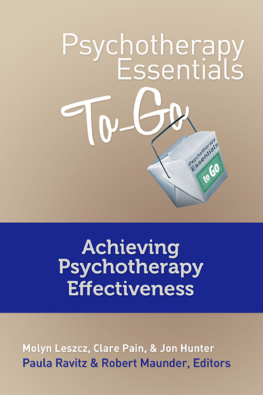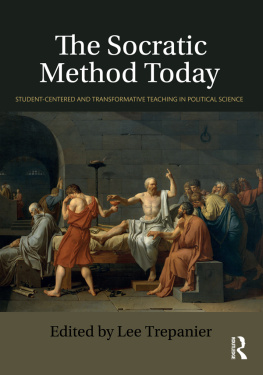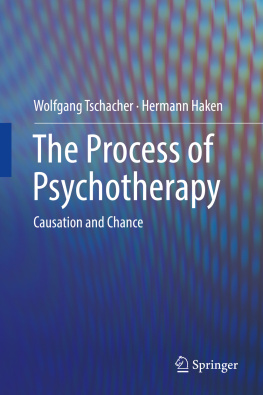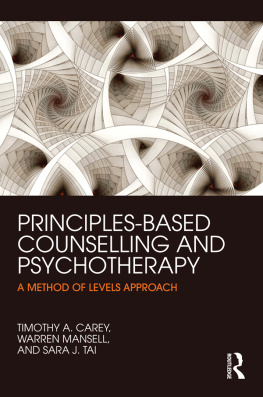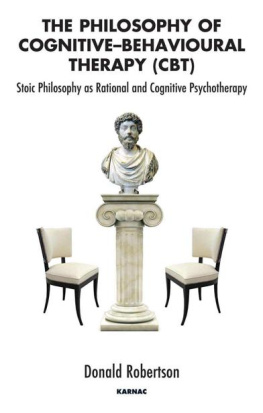The Socratic method facilitates learning and discovery through a process of collaborative exploration, and it can be applied to many situations. The method dates back to ancient times and is derived from the discussions led by Socrates in Athens.
In psychological writings, a variety of authors, including Aaron Beck and Albert Ellis, have endorsed the Socratic method as a useful tool for teaching and psychotherapy sessions, and this has reignited a scholarly interest in the method. However, discrepancies continue to exist across the various authors who describe the Socratic method, a Socratic dialogue, and Socratic questioning (Carey & Mullan, 2004). A Socratic dialogue can take many different forms (Carpenter & Polansky, 2002), and scholars even disagree about whether Socrates had a distinct method (Scott, 2002). Even worse, most authors mention the Socratic method only in passing and rarely provide useful details about the ideology or procedures undergirding the Socratic approach. This book will try to clarify the ideas and procedures of the Socratic method within psychotherapy sessions. However, I will not bother with trivialities in terminology. Instead, the Socratic method will be used interchangeably with a Socratic dialogue, a Socratic discussion, and the elenchus.
The translation of a few terms requires explanation. In classical texts, sophia is wisdom, which is only found in those people who seek a life of thoughtful contemplation. In contrast, episteme is knowledge that has been supported from a scientific viewpoint. Phronesis refers to practical understanding. Techne refers to technical expertise. Aporia refers to a state of puzzlement or confusion, which often comes as a result of Socratess questions, when people become aware of their own ignorance. Perhaps the central term to confront is the elenchus . This refers to a process of cross-examination and refutation. In a general manner, the elenchus captures the traditional view of the Socratic method. In its simple version, it is the interrogative exchange aimed at clarifying and refuting the questionees beliefs. In its more complex version, the elenchus is a lifelong strategy for remaining thoughtful and objective (King, 2008).
The historical foundation for the Platonic dialogues has largely remained within the provinces of philosophy and the classics. There have been a few authors working in education (e.g., Whiteley, 2014) or applied philosophy (e.g., Howard, 2011) who refer to Plato. However, most if not all scholars who discuss the Socratic method within the field of psychology fail to cite any publications either from antiquity or from contemporary philosophy. I have tried to remain true to the historical figure of Socrates as portrayed in the dialogues of Plato. Whenever possible, I attempt to remain anchored in the words attributed to Socrates, citing the classic two-volume source, The Dialogues of Plato , translated and edited by Benjamin Jowett (1892/1937). I remain surprised and a bit disappointed when I see authors attribute their personal values and opinions to Socrates and Plato without any evidence that they have ever read these important texts. To understand the Socratic method, I had to step outside of my own field and explore authors from classics and philosophy. This strategy has posed an endless series of challenges for me as an academic and a scholar. I struggle with the disparities of epistemology and method across the fields and with the vastly different writing styles endorsed by psychology versus philosophy. Furthermore, the Platonic dialogues can be engaging at times, but they pose their own challenges in my attempts to follow the narrative, learn from the dialogue, yet still translate the material into contemporary clinical psychology.
In philosophical writings, the Socratic method is usually synonymous with the elenchus. I will generally avoid this latter term because it remains beyond the lexicon of psychology. However, it is useful to recognize the elenchus as a discussion aimed at confronting, challenging, and refuting beliefs held by a client if the client cannot provide strong logical support for those beliefs. This notion is quite compatible with contemporary cognitive therapy. The elenchus helps a person move, slowly and gradually, toward discovery and new insights that can be trusted and valued (Seeskin, 1987). In true Socratic fashion, we will emphasize logic and examples. It makes sense to view clinical work and the case examples it provides as a natural laboratory for inspiring and exploring new ideas (Westen, Novotny, & Thompson-Brenner, 2004).
In the historic dialogues of Plato, the term interlocutor is used to refer to Socratess participant in the discussion. When discussing examples and trying to keep the material anchored in references from philosophy, I sometimes blur the line and refer to the discussant as the client or the other person, instead of interlocutor. Likewise, instead of constantly referring to Socrates and to dialogue exchanged centuries ago, I sometimes cautiously replace Socrates with therapist as the speaker in the discussion.
* * *
The present text cites a wide range of sources, giving credit to many pioneers in the fields of psychology, psychiatry, and philosophy. Because of the philosophical foundation that supports the core of the Socratic method, many of these references are from older sources and philosophical journals. There is less need to hype the latest research findings when the underlying ideas are ancient. Also, I have included many citations to support the philosophical foundation for the Socratic method. I have not included a wealth of citations for psychological views because my list of references was becoming rather extensive. I feel that psychology underlies everything I do, and I can support claims made within my home field. However, I feel obligated to provide support for statements that come from philosophy, classics, or virtue ethics.
To facilitate the dissemination of these abstract ideas, I have written this book in a conversational style rather than as an academic tome. As noted by Beutler and colleagues (1995), the standard format for academic journal articles is not appropriate for recommendations pertaining to psychotherapy. Instead, a single-authored book allows the freedom to discuss, explore, and present novel ideas that may be beneficial to the practicing or aspiring psychotherapist. I hope that graduate students, clinicians, and university professors will find value in the ideas expressed here and be inspired to integrate the Socratic method into their approach to psychotherapy.
Finally, relying on the Socratic method requires an important conceptual shift. There is much less focus on empirical support. Instead, the strategies are guided by comprehensive theories of human functioning combined with frequent involvement in clinical practice. The notions are influenced by hermeneutics as an improved strategy for the study of human behavior (Packer, 1985). Empiricism involves the examination of observable data collected without bias. Unfortunately, the empirical approach is a poor fit for the abstract concepts central to the Socratic method. In contrast, hermeneutics involves scholarly attempts to describe behavior without relying on abstract terms or theoretical assumptions (Packer, 1985).
The Socratic method has strong ties to rational support for ideas, relying on hypothesis testing to examine various beliefs (Packer, 1985). Hermeneutics, by contrast, relies on the evaluation of practical activities used in everyday work. Thus, the Socratic method as applied by psychology relies on a rational analysis of historical ideas and on a practical review of work performed in weekly psychotherapy sessions.
In describing the Socratic method of psychotherapy, this book will cover the primary active components of therapeutic dialogue: (1) the reliance on a series of questions to gather information and explore topics in detail, (2) the use of inductive reasoning to learn from specific examples and apply the new knowledge to the clients life situation, (3) a focus on broad terms or universal definitions to ensure that the discussion moves away from a narrow focus on specific problems or trivial events, (4) a willingness of therapist and client to accept the limits of their knowledge and approach all situations with an open mind and a willingness to learn, and (5) the use of guided discovery to move the dialogue forward with a sincere search for new ideas. When these five strategies are combined, they can be used to focus on several large goals for therapy, including the development of self-control, with an emphasis on self-improvement and on the willingness to explore virtue ethics as a guide for major life decisions and a positive focus for future goals. Thus, psychotherapy according to the Socratic method builds upon long-established ideas but integrates these ideas with the contemporary practice of psychotherapy.
Next page

